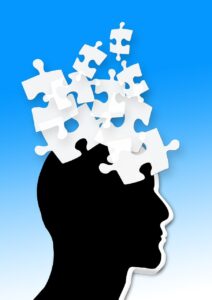Benefits of calcium for health

Calcium is required for more than just healthy bones. Additionally, it is essential for your heart’s normal operation. Although there may not be a direct link between calcium and the heart, this mineral is undoubtedly necessary.
We have long been advised to drink milk because of its calcium content because it is essential for developing and keeping healthy bones and teeth. Since it is thought to be the main mineral in bones, it gives them structure and strength. Therefore, it’s important to get enough calcium throughout your life. It turns out that there is a link between calcium and the heart. In actuality, a calcium deficit is quite bad for the heart.
Benefits of calcium for health
- Muscle activity
Calcium is essential for appropriate muscular contraction and relaxation, including the muscles involved in movement, heartbeat, and breathing, in addition to keeping healthy bones and teeth. when a nerve impulse enters a muscle, calcium ions are produced, which causes the muscle to contract. - Nervous system activity
The body’s nerves use calcium to send information to one another. It facilitates the release of neurotransmitters, which are molecules that enable communication between nerve cells. Therefore, calcium is crucial to preserving the nervous system’s ability to operate normally. - Secretion of hormones
Several hormones, including insulin, which controls blood sugar levels, and parathyroid hormone, which regulates calcium levels in the body, are secreted when calcium is present. These hormones are essential for keeping your body healthy overall.
Heart-related issues that a calcium deficiency may cause:
Yes, a calcium deficiency can cause heart problems. The vital mineral calcium is needed for many physiological functions, such as muscular contraction, nerve signalling, and blood coagulation. Calcium is essential for maintaining the regular contraction and relaxation of the cardiac muscles in the context of the heart.
The condition known as hypocalcemia can result from the body not having enough calcium. The heart can be impacted by hypocalcemia in a number of ways, including:
Arrhythmias: Low calcium levels can interfere with the electrical impulses that the heart uses to beat regularly, causing arrhythmias. These irregular beats can range in severity from mild palpitations to conditions that are potentially fatal.
Cardiac muscle weakness: The heart muscles require calcium to contract properly. Low calcium levels can impair cardiac contractions, which can result in decreased cardiac output and even heart failure.
Blood clotting risk is increased: because calcium is essential for the coagulation process and is lacking in some people. Due to this, there may be a higher chance of developing abnormal blood clots, which may result in consequences like heart attacks or strokes.
Cardiomyopathy is a condition where the heart muscle weakens and enlarges, impairing its capacity to effectively pump blood. Prolonged calcium insufficiency can contribute to the development of cardiomyopathy.
A balanced diet that includes calcium-rich foods, such as dairy products, leafy green vegetables, fortified cereals, and specific nuts and seeds, is crucial for maintaining adequate amounts of calcium in the body. It’s critical to speak with a healthcare provider for proper assessment and management if you think you may have a calcium deficit or are exhibiting any heart symptoms. Your calcium levels can be determined through testing, and if necessary, they can suggest the right course of action.



